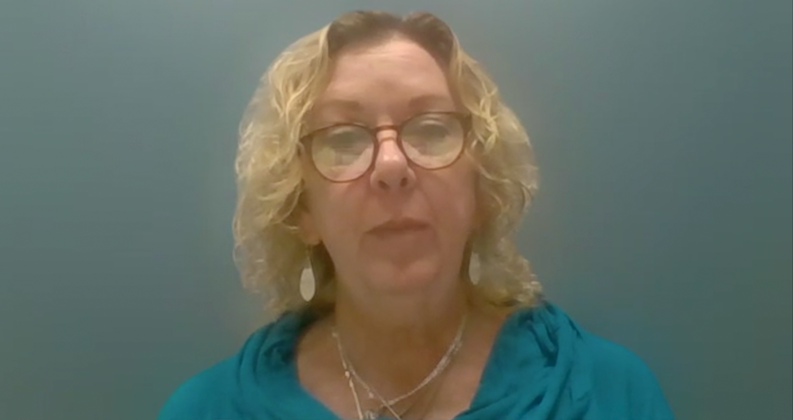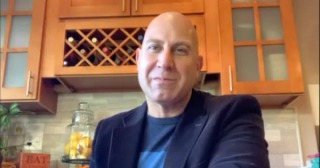
Value-Based Care
Latest News

Latest Videos

CME Content
More News

The concluding keynote address at the Academy of Managed Care Pharmacy Nexus 2022 meeting discussed new and emerging oncology drugs in the pipeline and their potential impact on the treatment landscape as it pertains to managed care providers.
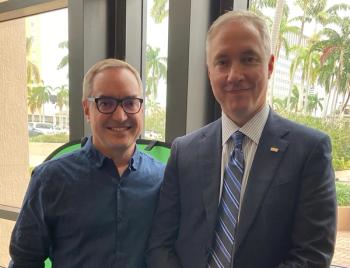
On day 1 of this year’s Association of Community Cancer Centers’ (ACCC) National Oncology Conference, The American Journal of Managed Care® sat down for a conversation with David Penberthy, MD, MBA, ACCC’s president for the 2022-2023 term, and his brother Scott Penberthy, PhD, MS, director, Applied AI, Office of the CTO, at Google.

Two stakeholders from Avalere Health discuss the utility of patient-centric value frameworks for equitable health care delivery, as well as challenges and strategies regarding its implementation at Academy of Managed Care Pharmacy Nexus 2022.

The annual fall meeting of AMCP Nexus 2022 will feature a keynote from one of the top physician-executives in health care, the specialty pharmaceutical pipeline, and insights for managed care stakeholders in selecting and integrating cost-effective, value-based care frameworks.

Continuing the race adjustment factors maintains health care disparities, the authors noted.

Electrochemotherapy in basal cell carcinoma (BCC) was evaluated for its utilization practicality, efficacy, and safety, as well as factors that may predict disease response to the treatment.
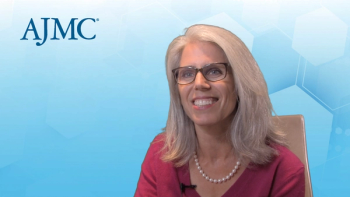
With multiple pathways and stakeholders involved, there needs to be an arbiter who decides what is the highest quality and highest value care in oncology, said Lucy Langer, MD, MSHS, national medical director, oncology and genomics, UnitedHealthcare.

Elements inspired by the principles of value-based insurance design (VBID) were incorporated into the recently signed Inflation Reduction Act, which could help reduce costs of care for patients, according to A. Mark Fendrick, MD, co–editor in chief of The American Journal of Managed Care® and director of the V-BID Center at the University of Michigan.

Outcomes following a heart attack, or myocardial infarction (MI), were assessed among a large patient population in Ontario, Canada.

Co-hosted by Memorial Sloan Kettering Cancer Center, the most recent Institute for Value-Based Medicine® event took place on September 22, with a focus on improving cancer care delivery through innovation.

Outcomes following right heart catheterization in a pediatric patient population were analyzed, with emphasis placed on risk of adverse outcomes following the procedure, especially the development of pulmonary hypertensive crisis (PHC).

Russell Rotondo, MD, FACC, medical director of clinical strategy and innovation for cardiology at Cohere Health, discusses the myriad positive ways utilization management programs can have an impact on patient outcomes in cardiovascular care.

Safety-net providers can benefit from demonstrations of condition-specific and defined-scope-of-practice alternative payment models that account for the nonfinancial as well as financial risks that providers face.

Stakeholders from Horizon Blue Cross Blue Shield of New Jersey discuss new ways to address management gaps for chronic behavioral health conditions, including a new integrated care model that puts community behavioral health providers in charge of overall care.

An integrated primary care service may improve the health status of patients with severe chronic obstructive pulmonary disease (COPD) without increasing health care costs, according to a recent study.

At AHIP 2022, Vanessa Bobb, MD, PhD, FAPA, vice president of Behavioral Health & Medical Integration at CDPHP, moderated a session on real-world study findings showcasing cost and quality benefits of value-based contracting in behavioral health. Bobb discusses findings of the study and how value-based programs can be better leveraged in mental health and substance abuse care.

Integrating primary care with behavioral health services, improving provider training on mental health, and policy changes were all noted as strategies to combat the rising mental health and substance abuse epidemic during a keynote session at AHIP 2022.

In the second of 2 parts, Nathan H. Walcker, MBA, CEO of Florida Cancer Specialists & Research Institute (FCS), discusses what he’d like value-based care to look like going forward. CMS ended the Oncology Care Model (OCM) yesterday after 6 years and has invited practices to apply for a successor model, the Enhancing Oncology Model.

In the first of 2 parts, Nathan H. Walcker, MBA, CEO of Florida Cancer Specialists & Research Institute (FCS), discusses the future of value-based care for the practice as the Oncology Care Model comes to an end today. This week, CMS announced it will launch a successor model.

The utility of value-based frameworks for payers, providers, and those involved in kidney care delivery was addressed during a session at AHIP 2022.

Designing rational spending targets and having small sample sizes are 2 main challenges payers and partners face in the shift toward alternative payment models (APMs), said Ravi B. Parikh, MD, MPP, assistant professor of medical ethics and health policy, assistant professor of medicine, University of Pennsylvania.

Ashok Subramanian, MBA, founder and chief executive officer, Centivo, speaks on the limitations of traditional employer-based health benefit plans in the pursuit of value-based care and what employers should consider in designing these incentives on a community level.
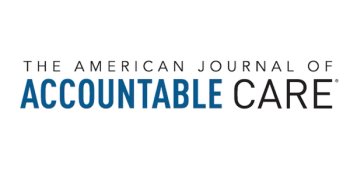
The authors call for the collection and use of data on virtual health care to shape an informed and thoughtful approach to telehealth payment that equitably serves all stakeholders.

Thirst outcomes were investigated among patients with stable heart failure (HF), due to the limited data available on this relationship and how it, along with fluid and sodium intake, influences clinical outcomes in this population.

The tools we need to achieve long-term stability for community providers and ensure better outcomes for rural Americans are available, and CMS can help us utilize them.


